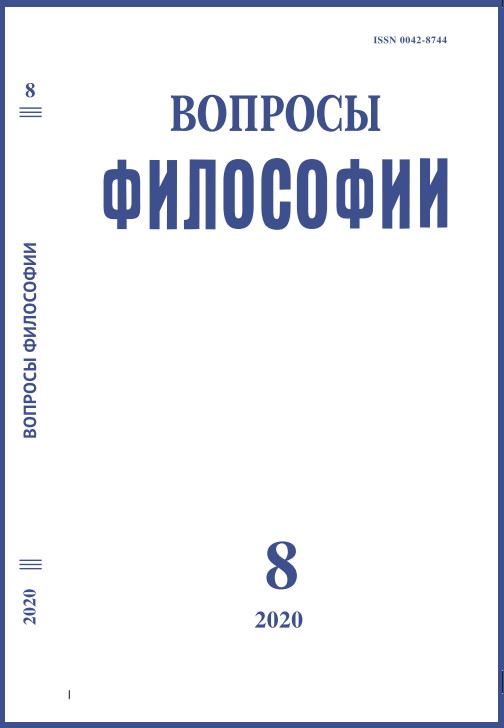The Problem of Ethnocultural Foundations of Historical Consciousness of the Person in the Era of Globalization
DOI:
https://doi.org/10.21146/0042-8744-2020-8-54-63Keywords:
ethnic paradox of modernity; ethno-cultural identity; historical consciousness; post-historical consciousness; quasi-historical consciousness; historical myth; historical truth; idea and ideologyAbstract
The article deals with peculiarities of the transformation of historical consciousness in the context of modern ethnic groups. The ethnic identity of a person is inextricably linked to his or her historical consciousness. This connection is not limited only to the knowledge of historical events, but suggests a way of organizing such knowledge of the ethnos’ past in the space of personal meanings and values. The past has a special being status in a person’s consciousness: it is that which was, which fatally determines the present and the future. The authors emphasize that processes of globalization and the associated culture of mass consumption transform historical consciousness of modern people, in which the existential connection of times breaks down. The events of the past lose their existential status, and turn into a set of information items, material for the hermeneutic framing of history. At the same time, globalization leads to the formation of a multicultural society in which the past is used as a symbolic resource of group consolidation. In such a society, historical consciousness assumes quasi-traditional forms based on the framing of simplified and unambiguous mythologies of the historical past, in which the present and the future dissolve. The specificity of historical truth, which combines the verification of facts about the events of the past, the uncover of the value-semantic integrity of the historical process and its ideological and moral grounds, is investigated. The importance of historical truth in the formation of ethno-cultural identity is substantiated

